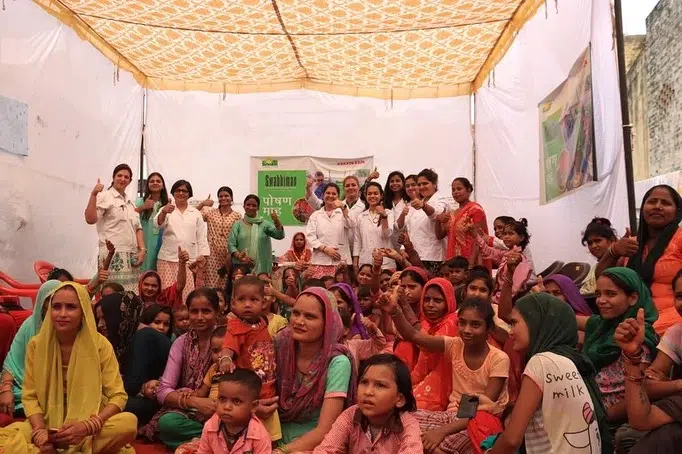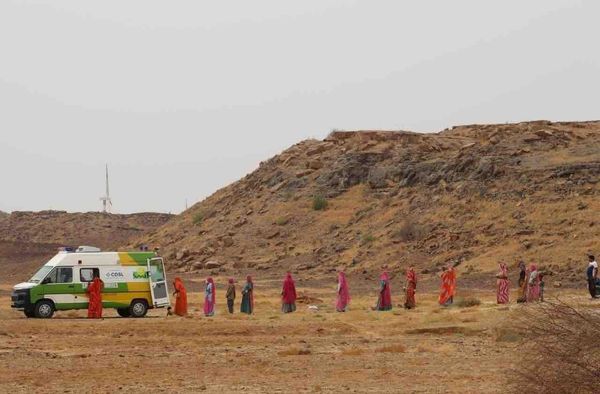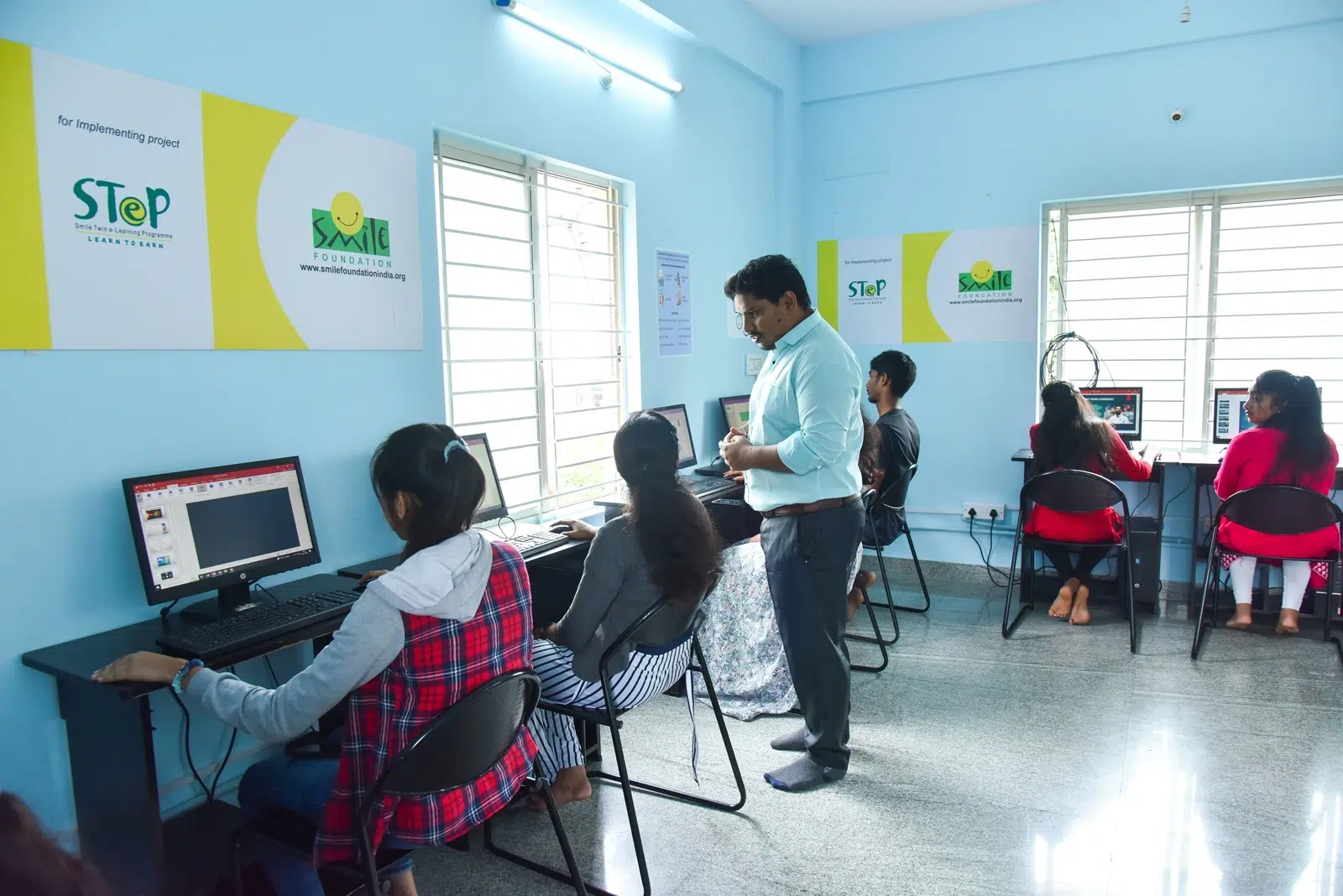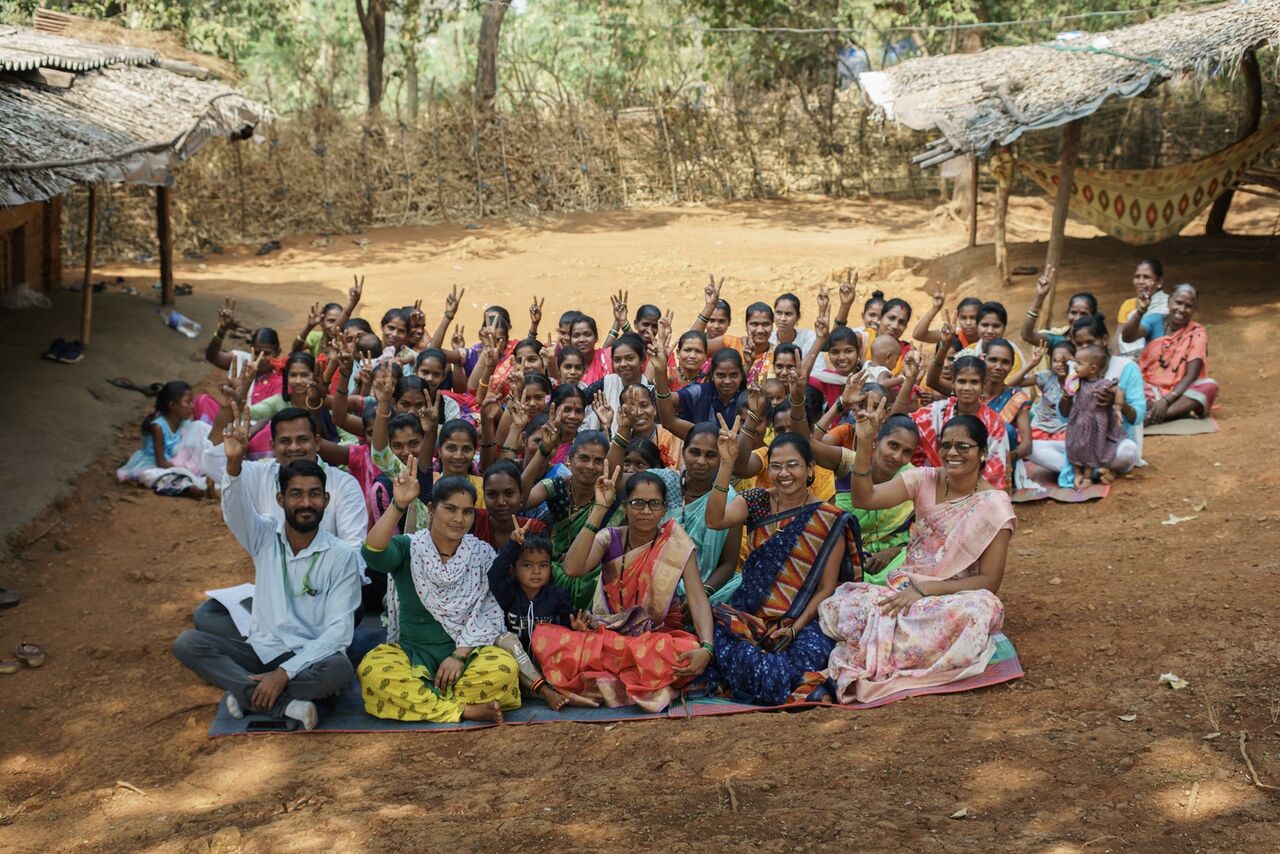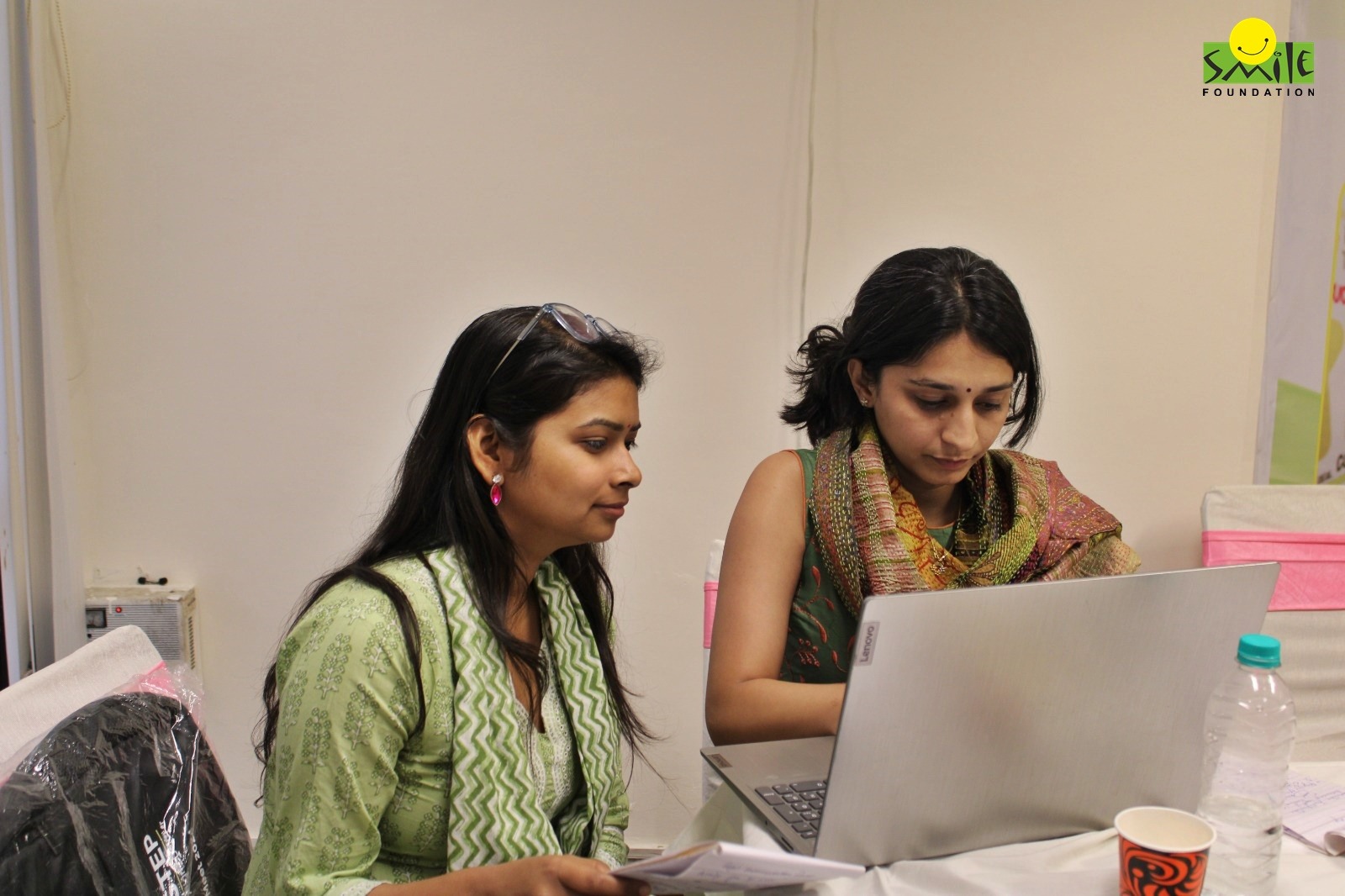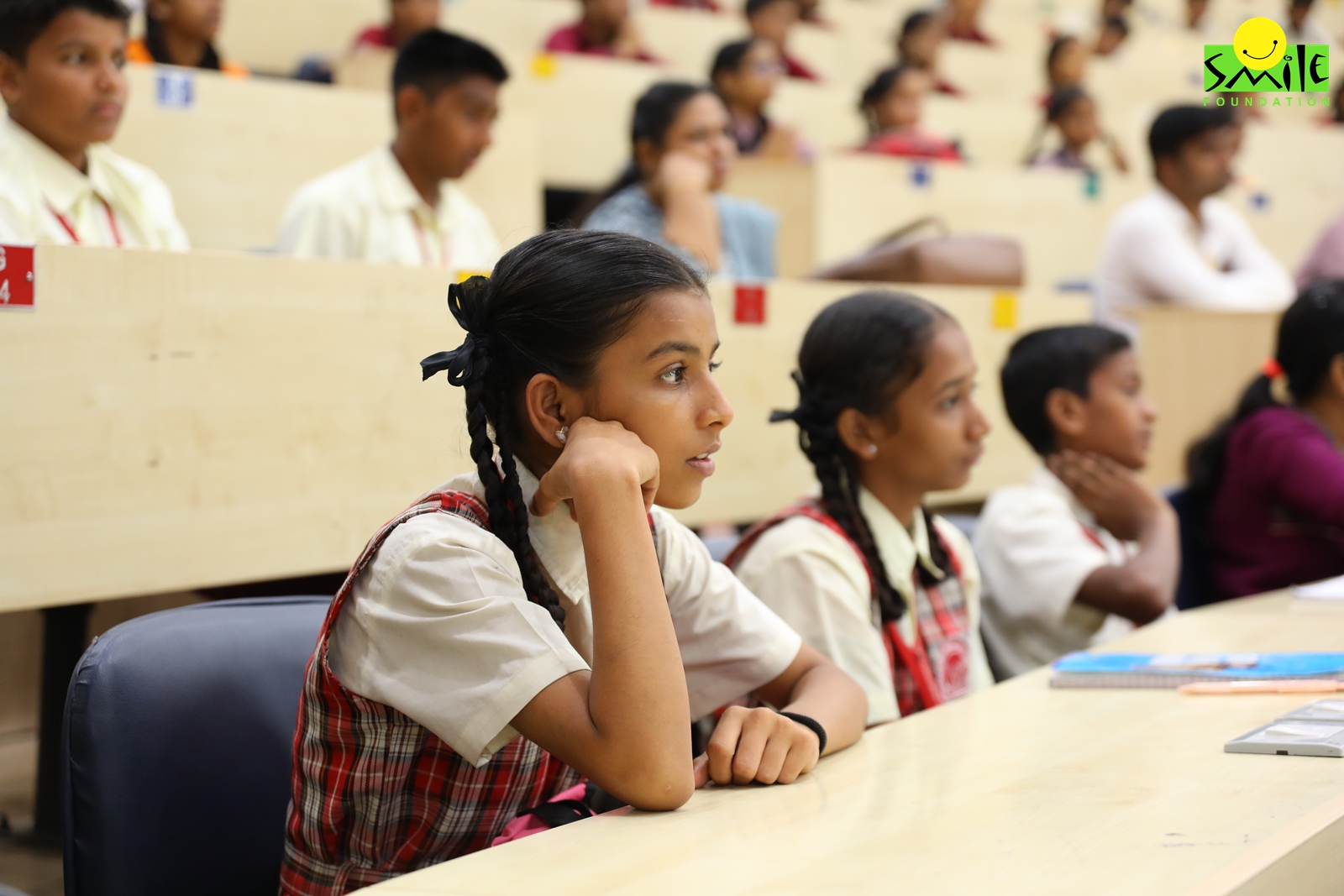Smile Foundation is dedicated to conducting real work on the ground and promoting inclusivity in society and business as a means of effecting change. Smile Foundation’s projects align with the Sustainable Development Goals (SDGs) and the approach integrates intersectionality within the SDGS as well. Our projects work towards achieving SDG 1- No Poverty, SDG 2- Zero Hunger, SDG 3- Good Health and Well-being, SDG 4- Quality Education & SDG 5- Gender Equality, SDG 6- Clean Water and Sanitation, SDG 8- Decent work and Economic Growth and SDG 10- Reduced Inequalities.
The Core Areas of Work
Our primary goals include education, health, livelihood, women’s empowerment, disaster relief and grassroots empowerment. These are some of the key campaigns we work on.
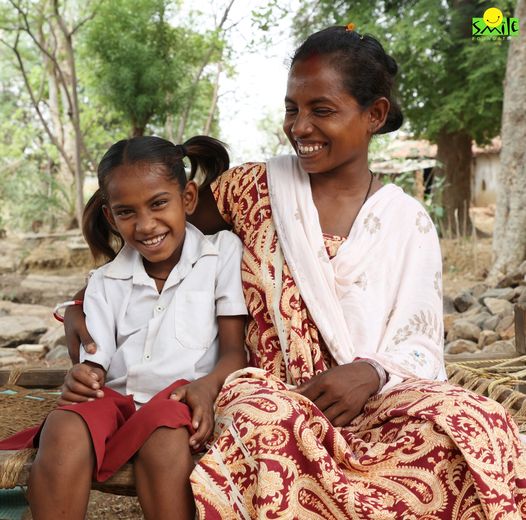
I am a farmer earning 200-250 rupees a day. Neither my parents nor I went to school. Before marriage, I was determined to educate my children. I am grateful to those who educate my daughter for free. Seeing her in uniform, studying like children from affluent families, fills me with pride. I want her to achieve everything I never did.
– Sivani’s mother, Mission Education Centre – Jharkhand
The challenging socio-economic circumstances of many children who miss out on a good education and the low participation of women in education and STEM learning programmes is the basis for this initiative. Smile Foundation’s Shiksha Na Ruke project focuses on
- education
- health check-ups
- teacher capacity building
- vocational training
- music
- sports
- life skills
- STEM learning
- digital literacy
- and scholarships for girls as their areas of work.
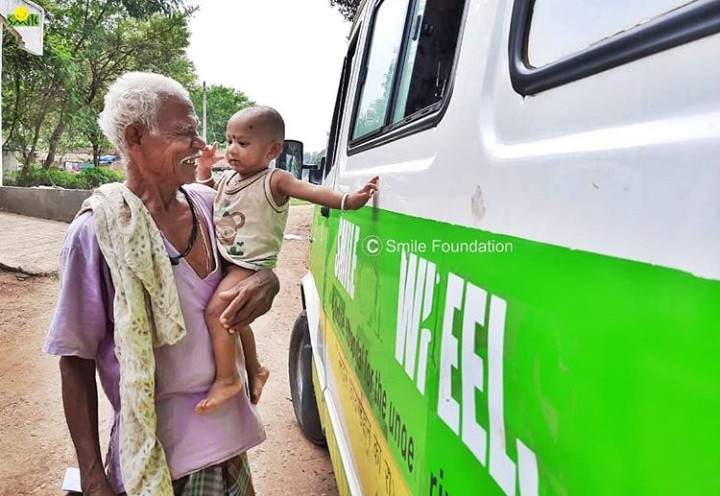
Surya’s mother died in childbirth, leaving his grandfather to care for him. When his grandfather developed health issues, he turned to Smile’s mobile medical van for treatment. With the doctors’ help and his determination, he improved his health and could continue to provide for Surya’s future.
– Bisahu Khare, Chhattisgarh
The Health Cannot Wait initiative by Smile Foundation improves the healthcare system including dental care and reduce the out-of-pocket expenses by providing quality healthcare services directly to vulnerable communities, with a special focus on women and children. We organise health camps that educate about water, sanitation and hygiene (WASH) and promote children’s health.
Our Mobile Healthcare Units offer outpatient services, testing and medicines to underserved populations. Telemedicine Centres and e-Health Kiosks connect remote rural areas with urban health centres, making specialised healthcare more accessible. Smile Foundation also supports Government Health Centres by integrating telemedicine, training frontline workers and upgrading Primary Health Centres (PHCs). These efforts collectively improve healthcare access and empower communities.
She Can fly
I aspire to become an IAS officer to positively impact society and my country. Inspired by this education centre, I dream of opening my own to support others on their educational journey. I want an inclusive space where anyone, regardless of background, can learn. I particularly aim to empower mothers who couldn’t study when they were young through education.
– Nazneen
Smile Foundation’s She Can Fly initiative is aimed at enabling and empowering girls to become self-reliant. We want them to rise up to their full potential through interventions in education, vocational and skill training and healthcare and nutrition. It is also a step towards sensitising the civil society at large and helping create a gender-neutral society.
Swabhiman
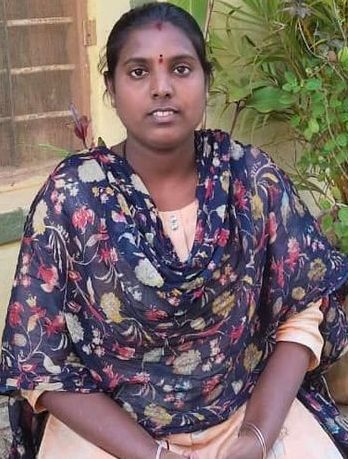
Yashoda joined Smile’s “Entrepreneur Development Training Programme” after her husband lost his job during the pandemic. After completing the training she rallied the community women and established “Kadamba Naturals,” crafting handmade organic cosmetics.
Yashoda is a community leader today, who envisions expanding her business to empower more women towards self-reliance.
In 2005, Swabhiman, a women empowerment programme, reached out to marginalised and socially excluded women with interventions in nutrition, healthcare and livelihood. Smile undertook innovative community practices to help them seek reproductive healthcare, understand their nutrition needs and achieve financial independence through skill training and financial literacy. Swabhiman also actively works to create a gender equal society, engaging men and boys to participate in the process of women empowerment.
The core areas of work include – Reproductive & Child Health, Nutrition Enhancement, Entrepreneurship Development, Digital Financial Literacy, Govt. Convergence & System Strengthening and Sustainability in Communities.
Tayyari Kal Ki
Gunjan is a 19-year-old ambitious girl from Bihar and is currently residing in Noida with her parents and 3 siblings. She is pursuing her graduation in Political Science; however, she was always inclined to make a future in Digital Marketing. She joined STeP Digital Marketing Skilling Programme, which gave her a platform to display her thoughts before like-minded people, and made her realize her true potential. She is currently working at Forward Eye Technology as a Senior Digital Marketing Executive and grossing in a package of Rs. 12,000 per month.
Tayyari Kal Ki train & up-skill the youth between the age of 18-32 years for empowering them with a secure livelihood. This livelihood mission is in strong alignment with the Government of India’s Skill India initiative. The highlights of the programme are – Cloud-based Online Training, Industry Exposure Visits, Hand-on Training, Direct Interface With Employers.
Other Initiatives
Under the Child For Child programme, Smile Foundation conducts school sessions to raise awareness among children about various causes and their privileged status. The Empowering Grassroots programme aids grassroots initiatives in becoming locally sustainable, aligning with India’s “Atmanirbhar Bharat”. Additionally, the Disaster Response programme provides emergency relief during calamities, focusing on children and their families.




